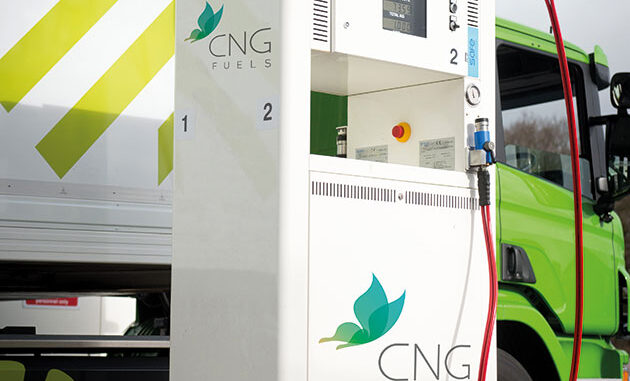
Biomethane usage is on the up, but a proposed change to the way it’s reported could ruin the business case for environmentally conscious truck operators. Jack Carfrae explains.
FORGET electric trucks, operators serious about alternative fuels need something that’s available now and with a range beyond the inner ring road.
LNG – liquid natural gas – seemed like the answer for a time. Offered out of the box by manufactures such as Volvo and Iveco, it was a credible substitute to the black pump, providing you could make it work with the infrastructure.
Crack that, and your fuel costs would drop to the point where the initially higher cost of the vehicles/conversion would pay for itself. That was until lead suppliers BOC and Calor pulled the plug, leaving operators who’d invested in LNG vehicles high and dry.
CNG – compressed natural gas, or biomethane – has since stepped up to the plate. Supplied in gas rather than liquid form, the model is similar to that of LNG – the trucks are said to cost about £20-25,000 more than a diesel equivalent, the infrastructure is less abundant than diesel’s, but if your routes sync up, then it is a practical, eco-friendly fuel (see the Biomethane: what is it and what are the savings? sidebar) with an alleged payback of no more than two years at a mileage of 100,000 per year and working for both long and short routes.




